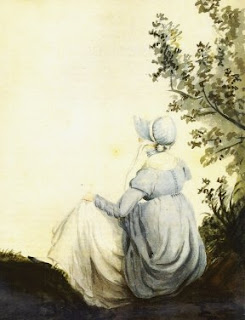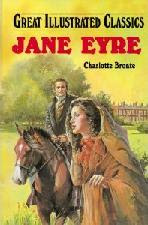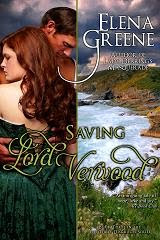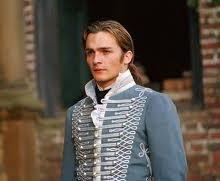 Have I bored you sufficiently talking about myself? Would you like to also know that I live near
Have I bored you sufficiently talking about myself? Would you like to also know that I live near  Have I bored you sufficiently talking about myself? Would you like to also know that I live near
Have I bored you sufficiently talking about myself? Would you like to also know that I live near  Have I bored you sufficiently talking about myself? Would you like to also know that I live near
Have I bored you sufficiently talking about myself? Would you like to also know that I live near Last Saturday one of my favorite events occurred. The Washington Romance Writers meeting when Kathy Gilles Seidel, A WRW member, RITA winner and Austen scholar, speaks about one of Austen’s books and the movies made from it.
This year it was Emma, comparing the book and four movie versions: The Gwyneth Paltrow version, the Kate Beckinsale version, the recent BBC mini-series, and Clueless.
 The very first WRW meeting I ever attended (back in 1995), Kathy spoke on Austen’s use of the celebration in her endings. Being so very new to romance writing and still under the influence of the popular disparaging viewpoint of romance being “less than” real books, I was thrilled beyond words to hear this intelligent discussion. Since then I’ve heard Kathy speak several times on Austen and on other romance-writing topics and she never disappoints.
The very first WRW meeting I ever attended (back in 1995), Kathy spoke on Austen’s use of the celebration in her endings. Being so very new to romance writing and still under the influence of the popular disparaging viewpoint of romance being “less than” real books, I was thrilled beyond words to hear this intelligent discussion. Since then I’ve heard Kathy speak several times on Austen and on other romance-writing topics and she never disappoints.
Kathy usually speaks at our January meeting, cancelled this year due to snow and rescheduled to June. We had a smaller group than usual, probably because it was a beautiful day and a busy time of year. It worked out marvelously, though, because the talk became a discussion, casual enough for everyone to feel comfortable speaking up, light enough for plenty of joking and fun.
Here are a few random points made throughout the day-long workshop.
1. Emma is not a romance, but a “woman’s journey”story and essentially a book about power. As a story about power, the movie that comes closest is Clueless.
2. In Clueless the heroine, Cher, is constantly underestimated; in Austen’s book, Emma is constantly overestimated. She is seen as doing no wrong, but, in reality, she gets everything wrong.
3. As a story about power, Austen shows how the power is shifting in the society of her day. The book shows the rising power of the middle class and the decreasing power of the landed gentry. Emma starts the book with lots of social power in her community, but her power is challenged by the Coles, representing the rising middle class, who almost do not invite her to their party, and, towards the end, by Jane Fairfax, who refuses her visit.
3. Within Emma, there are lots of secrets characters keep from each other, but in the book Austen gives subtle hints as to what is really going on. Sometimes the hints are only a few words in a long paragraph. It takes an alert reader and many readings to catch these subtleties. Because of this (and for many other reasons), the book is a classic where you discover new things with each reading.
4. Jennifer Enderlin, editor-in-chief, St. Martin’s Press, and Kathy’s editor, says that, in the first chapter of a book, the writer should give the reader someone to love and someone to hate. But Austen sets herself a great challenge in that she gives the reader many reasons to dislike Emma in the first chapter, and few reasons to like her. The reader must learn to like Emma as the book progresses.
5. We watched clips of the beginnings of the four movies. The moviemakers, though, tried to give viewers clear reasons to like the Emma character. In Clueless, we can forgive Cher her self-centeredness, because she is a teenager. Paltrow’s and Beckinsale’s Emmas are very sweet, especially to their fathers. The BBC version goes back in time and shows Emma’s mother’s death and really pulls on the viewers’ heartstrings.
There was so much more in this stimulating discussion, plus both lunch and dinner with writing friends. What could be better?
What’s your favorite sort of day among like-minded people?
Did you read Emma or see any of the movies? What’s your take?
Don’t forget the Harlequin Historical Authors Summer Beach Bag Giveaway. Today starts week two with plenty more prizes and more chances to win a Kindle Fire!
(n) Gothic romance (a romance that deals with desolate and mysterious and grotesque events) — from the Princeton University website

 My introduction to Gothic romance was in high school, where I first read Jane Eyre and got sucked in by all the classic Gothic romance elements: a romantic but dangerous setting, an innocent and vulnerable heroine, a hero with Secrets. Later (having gone to an all-girl Catholic school) I also read Rebecca, a more modern Gothic that fascinated me and many of my classmates.
My introduction to Gothic romance was in high school, where I first read Jane Eyre and got sucked in by all the classic Gothic romance elements: a romantic but dangerous setting, an innocent and vulnerable heroine, a hero with Secrets. Later (having gone to an all-girl Catholic school) I also read Rebecca, a more modern Gothic that fascinated me and many of my classmates.

 I suspect a lot of Gothic romance authors have been inspired by Jane Eyre, but Charlotte Bronte was by no means the founder of the genre. During the Regency, readers enjoyed Gothic romances such as those published by the Minerva Press. It was Ann Radcliffe who made them popular with examples like The Mysteries of Udolpho, which inspired much of the foolish behavior of Catherine, the heroine of Northanger Abbey. Although Jane Austen poked fun at Gothics, I suspect she enjoyed reading some of them herself. BTW I find this cover for Northanger Abbey very funny!
I suspect a lot of Gothic romance authors have been inspired by Jane Eyre, but Charlotte Bronte was by no means the founder of the genre. During the Regency, readers enjoyed Gothic romances such as those published by the Minerva Press. It was Ann Radcliffe who made them popular with examples like The Mysteries of Udolpho, which inspired much of the foolish behavior of Catherine, the heroine of Northanger Abbey. Although Jane Austen poked fun at Gothics, I suspect she enjoyed reading some of them herself. BTW I find this cover for Northanger Abbey very funny!
Gothics can go awry. I think the concept of the TSTL (Too Stupid to Live) heroine arose with romances in which the heroine runs off in her nightie, holding nothing but a candle, to investigate an eerie sound in the attic or cellar where dire events are suspected to have occurred.
I still like Gothic romance and I happily suspend disbelief to follow the characters into situations that are wildly unlikely in real life. I played with some of these elements in my recent reissue, SAVING LORD VERWOOD. I haven’t read many recent historicals like this (though I’m admittedly way behind in my reading) but dark paranormals provide the same thrill. A well-written romance with Gothic elements is like a piece of luscious chocolate. Who cares if it’s good for you?
 Do you enjoy romance with Gothic elements? What are some of your favorites, classic or modern?
Do you enjoy romance with Gothic elements? What are some of your favorites, classic or modern?
I’ll be giving away 5 Kindle or Nook copies of SAVING LORD VERWOOD to commenters chosen at random. If you win, you can also nominate a friend to receive a free copy. Void where prohibited. You must be over 18. No purchase necessary. Post your comment by midnight EST on January 13. I will post an announcement on Saturday, January 14, so please check back to see if you have won.
 As far as I can recall, Jane Austen never used the term “rake” in her stories, but it’s my understanding that during her time, it had a different spin than we put on it in modern historical romances. Jane’s villains tend to be what might have been called rakes; their common trait is they take advantage (or try to) of women in the stories. Her heroines always end up with the good guys.
As far as I can recall, Jane Austen never used the term “rake” in her stories, but it’s my understanding that during her time, it had a different spin than we put on it in modern historical romances. Jane’s villains tend to be what might have been called rakes; their common trait is they take advantage (or try to) of women in the stories. Her heroines always end up with the good guys.
Jane’s bad boys aren’t all equally villainous and I have a little more sympathy for some than others. Actors’ interpretations can bring out nuances, too.
Frank Churchill from Emma is the lightweight, more selfish puppy than dark schemer. I can’t remember enough of other portrayals of Frank Churchill to judge, but here’s Ewan McGregor in the 1996 (Gwyneth Paltrow) version.
At the other extreme, Pride & Prejudice’s Wickham is pretty loathsome. Here are Adrian Lukis and Rupert Friend, from the 1995 and 2005 versions, respectively. I think Lukis’s Wickham is a little too obvious to fool Elizabeth. Friend, on the other hand, has a gaunt look about him that makes him seem more vulnerable and thus more deceptive. 

William Elliot from Persuasion is another villain without redeeming qualities, but at least Anne sees through him pretty quickly. Here’s Samuel West, from the 1995 film that is my favorite adaptations. Honestly, I can’t remember other portrayals. I need to watch more Austen movies over the holiday break!
Willoughby (Sense & Sensbility) is more interesting. Dominic Cooper in the new version seemed kind of a toad; I prefer Greg Wise’s portrayal in the 1995 (Emma Thompson) version. He gives the sense that he will regret giving up Marianne for the rest of his life. Though perhaps he deserves his fate, I can’t help feeling a little sorry for him. 

 I also find Henry Crawford from Mansfield Park intriguing. Although I haven’t yet seem a film version of MP that I liked, here’s Alessandro Nivola in the 1999 version.
I also find Henry Crawford from Mansfield Park intriguing. Although I haven’t yet seem a film version of MP that I liked, here’s Alessandro Nivola in the 1999 version.
Although I find these last two the most well rounded as villains, they’re still not quite the reformable rakes of historical romance, who may get around but don’t treat women as badly.
So what do you think of Jane’s bad boys? Which do you find most interesting? Which actors did the best job with them? What do you think of good guys versus rakes in historical romance?
Comment for the chance to win either the annotated copy of Pride & Prejudice or Persuasion. Our Jane Austen Week winner will be announced on Monday.
 And congratulations to the following winners of the Kindle ebook of THE REDWYCK CHARM. Please send your email address, and if you wish, the email address of a friend who might enjoy a copy, to elena @ elenagreene.com (no spaces).
And congratulations to the following winners of the Kindle ebook of THE REDWYCK CHARM. Please send your email address, and if you wish, the email address of a friend who might enjoy a copy, to elena @ elenagreene.com (no spaces).
Virginia
Beebs
Bibliophile
Na
Barbara E
Happy holidays!
Elena
Yay! Happy Birthday, Jane! You don’t look a day older than 235.
We’ve been celebrating Jane’s birth all week here at the Riskies, and of course she was on my mind as I rode the subway to work this morning. I haven’t read more than snippets of Jane’s books in years, mostly because I reread them obsessively when I was in my teens, so much so I know I have parts memorized, even thirty years later.
Jane showed me a person could have a different personality and still be likeable. Could still have misguided ideas and still be a good person. Could be tolerable, and also desirable.
Those are some pretty important life lessons.
Earlier this week, Amanda discoursed on Austen film interpretations, and I have to admit to secretly loving the Greer Garson/Laurence Olivier version of Pride and Prejudice. That’s mostly because it was my first version (and you never forget your first…), and I’m pretty sure I saw the film before reading the book, so I didn’t comprehend the incongruity with the text. I knew nothing about historically accurate costumes, or the correct age for the characters, or any of that. I only knew he was handsome, and she was feisty, and I admired her for rejecting such a catch.
Thank you, Jane, for showing me that you should reject people–foxy though they are–if they don’t accept you entirely as you are.
